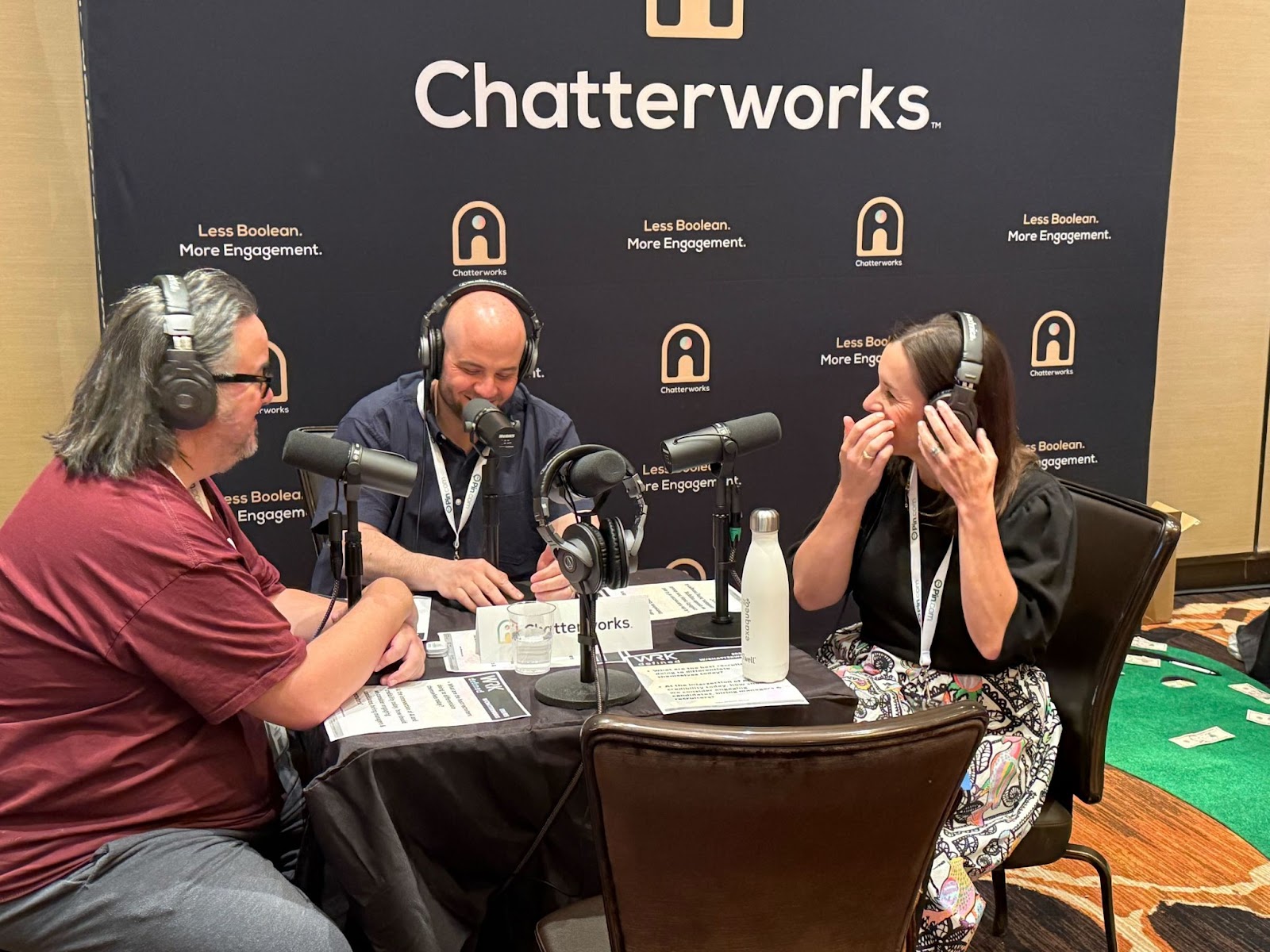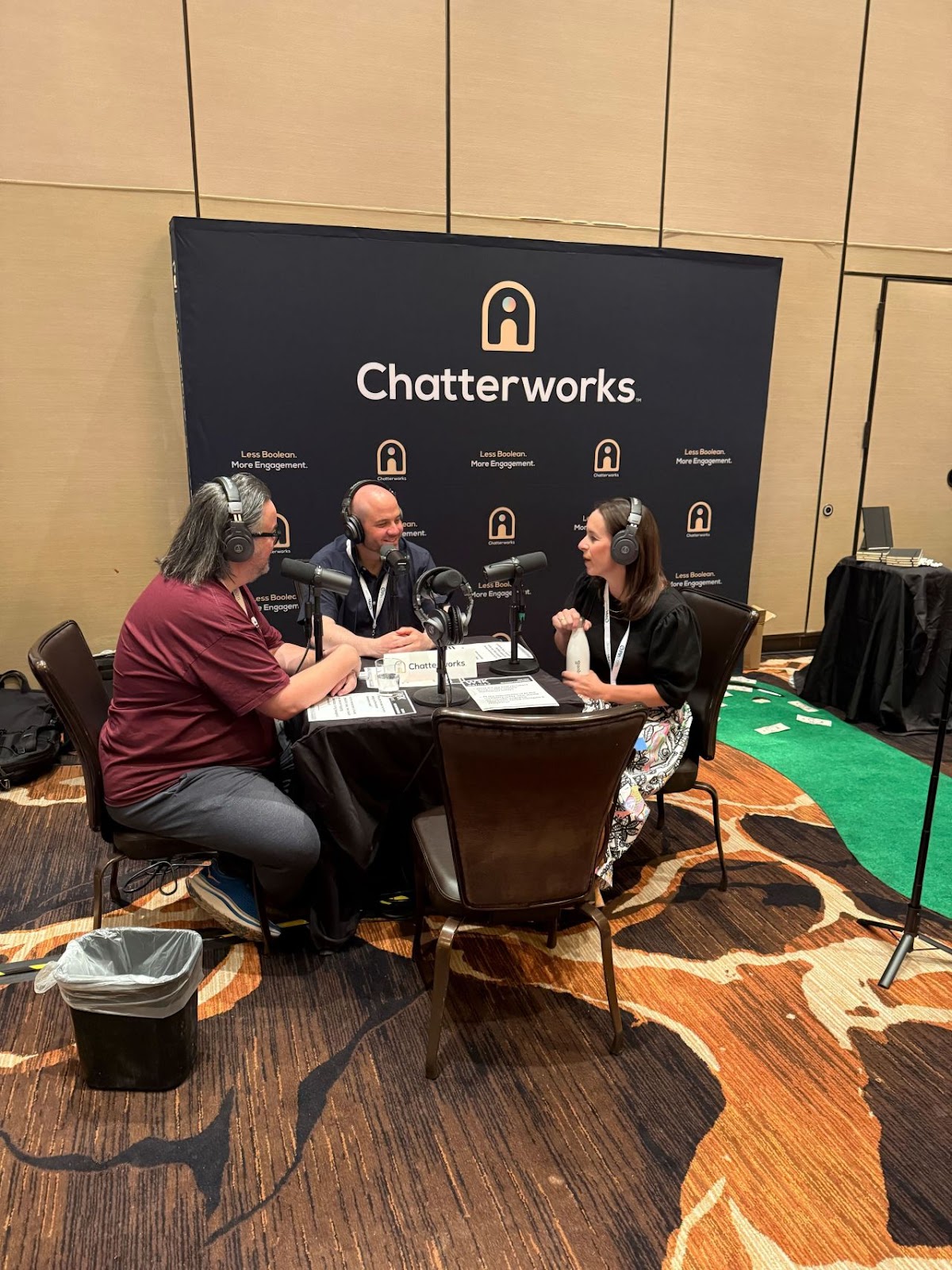
Shafiur Rahman
CEO at ChatterWorks

Susan Lamont, CEO of Exaqueo, reveals why recruitment must shift from transactional hiring to building meaningful, authentic relationships. Recorded live at the ERE Recruiting Innovation Summit 2025.
Recorded live from the expo floor at the ERE Recruiting Innovation Summit 2025, the Chatterworks limited series captures the dynamic perspectives of industry leaders. One of these insightful voices is Susan Lamont, CEO of Exaqueo, a recognized thought leader in employer branding and candidate experience with over 25 years of experience in talent acquisition. Susan’s expertise lies in navigating the complex intersection of technology, recruitment strategies, and human relationships.
At the heart of Susan’s perspective is the critical evolution of employment relationships from transactional exchanges to more meaningful, communal interactions. "Employment has traditionally been treated as a transactional exchange—like buying coffee," Susan explains. "If my specific need isn't met, I move on. However, genuine employment relationships should resemble familial bonds, where mutual understanding and broader needs drive long-term satisfaction."

This approach, according to Susan, redefines how recruiters and organizations should engage talent. It necessitates recruiters looking beyond qualifications and skills to holistically understand candidates’ lives, motivations, and aspirations. This depth of understanding fosters authentic matches and creates lasting engagements, benefiting both employers and employees.
Susan challenges traditional recruitment methods by highlighting how technology, particularly career sites, has historically prioritized organizational convenience over candidate experience. “The problem isn't having a career site—it’s how organizations utilize it strategically,” Susan emphasizes.
She urges organizations to adopt candidate-centric approaches by deeply understanding their audience. This means recognizing the distinct needs of different generations entering the workforce, such as Gen Alpha, and adapting recruitment strategies to their communication preferences and expectations. “Recruiters must think about talent segments not just broadly but contextually, understanding the geographical, generational, and vocational nuances,” she advises.
One often overlooked aspect of effective talent acquisition, according to Susan, is the role of consultants in navigating internal organizational dynamics. Consultants, she explains, offer external objectivity, allowing internal stakeholders to preserve their political capital. "Internal leaders often face constraints that prevent them from candidly addressing systemic issues. Consultants can openly identify problems, bringing accountability and objectivity to the table,” she notes.

The ability to build trust, Susan argues, is foundational to successful consulting relationships. Consultants must not only identify problems but also adapt their strategies dynamically to address complex organizational realities effectively. “The best consultants are those who offer flexibility, rigorous research, and the willingness to pivot strategies as needed,” she emphasizes.
Susan also critiques the enduring reliance on resumes, describing them as essential yet superficial in today's recruiting landscape. She argues that the industry's historical reliance on resumes overlooks the potential of more dynamic, holistic candidate evaluations.
“The resume was initially designed to provide basic candidate information, but today's recruitment demands a more comprehensive understanding," Susan points out. "Organizations should focus more on stories and portfolios that reflect candidates' true capabilities and potential rather than relying solely on static resumes."
Addressing the hot-button issue of artificial intelligence, Susan highlights two prevailing organizational responses: reactionary adoption versus strategic integration. She advocates for the latter, where AI is thoughtfully embedded into recruitment processes rather than hastily adopted out of fear of missing out.
"AI will soon become as ubiquitous as the internet," Susan predicts. "Strategically integrating AI means recognizing its role as a foundational component rather than a fleeting trend."
Organizations, she argues, should proactively integrate AI into their workflows, using it to enhance—not replace—human-driven recruitment strategies. This strategic approach to AI ensures recruiters remain competitive and capable of managing increasingly complex talent ecosystems.
Susan identifies the hallmark of today’s best recruiters as their ability to cultivate authentic relationships with candidates. Recruiters must transition from being mere transactional intermediaries to becoming genuine advocates for both their organizations and their candidates.
"Recruiters who succeed in the modern landscape are those who invest in understanding candidates' broader life contexts," she explains. "They foster relationships built on mutual benefit, transparency, and authenticity."
Susan’s insights offer a compelling vision for the future of talent acquisition, rooted in authentic relationships, strategic technology use, and thoughtful consultancy. As recruiters increasingly embrace these principles, they position themselves—and their organizations—for sustained success in a rapidly evolving industry.
This article is part of Chatterworks’ limited podcast series from the ERE Recruiting Innovation Summit, designed to spotlight today's recruitment leaders and foster dialogue on the future of talent acquisition.